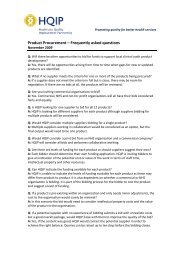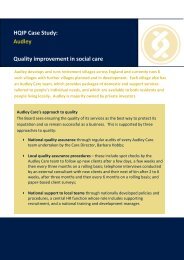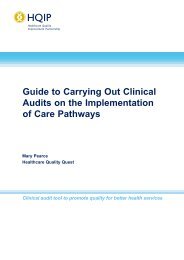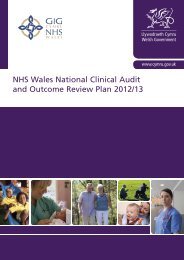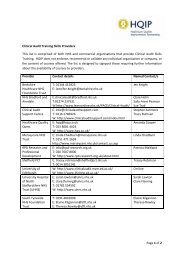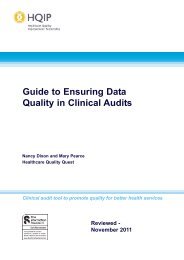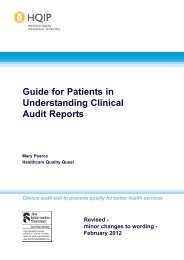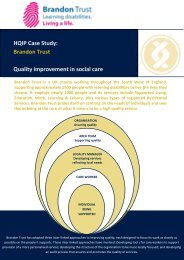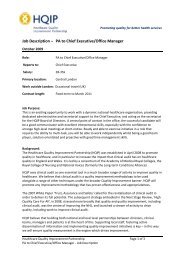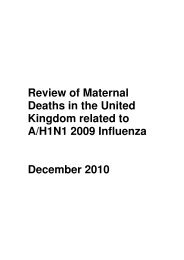Good Governance Handbook - HQIP
Good Governance Handbook - HQIP
Good Governance Handbook - HQIP
You also want an ePaper? Increase the reach of your titles
YUMPU automatically turns print PDFs into web optimized ePapers that Google loves.
1. Introduction<br />
This document has been designed to provide some key principles of good governance<br />
that can aid decision making at board level in healthcare providers. The guide builds<br />
on previous best practice guidance 1,2 whilst recognising the major impact of the<br />
current changes to the NHS architecture. It is intended to be of interest to existing<br />
NHS boards, emerging Clinical Commissioning Groups and Health and Wellbeing<br />
Boards and those responsible for managing governance systems and processes within<br />
healthcare.<br />
2. Purpose of governance<br />
<strong>Governance</strong> is based on a set of principles that has developed over time to meet new<br />
challenges in areas such as: risk, finance, quality, probity, commerce and reputation.<br />
The current ‘rules’ and reactions to these challenges can usually be traced back to an<br />
initiating principle. Understanding these principles helps those tasked with<br />
developing appropriate governance to apply sensible solutions.<br />
<strong>Governance</strong> initially started to develop as the management of organisations<br />
separated from their ownership. As commerce grew more sophisticated in the late<br />
18 th century and more stakeholders became involved in organisations, governance<br />
started to develop as a means of looking after their interests. Custom and practice,<br />
advisory codes, the law and the compliance requirements of lenders and investors<br />
started to shape the governance structures and systems we know today.<br />
<strong>Governance</strong> should deliver a focus on:<br />
• Vision – a shared understanding of what it is the organisation is trying to<br />
achieve and the difference it intends to create.<br />
• Strategy – the planned achievement of the vision.<br />
• Leadership – the means by which the organisation will take forward the<br />
strategy.<br />
• Assurance – comfort and confirmation that the organisation is delivering the<br />
strategy to plan, manages risk to itself and others, works within the law,<br />
delivers safe, quality services and has a proper grip on resources of all kinds<br />
and for which it is accountable.<br />
• Probity – that the organisation is behaving according to proper standards of<br />
conduct and acts in an open and transparent manner.<br />
• Stewardship – that the organisation applies proper care to resources and<br />
opportunities belonging to others but for which it is responsible, or can effect.<br />
1 Department of Health, Governing the NHS: A Guide for NHS Boards, June 2003<br />
2 Department of Health, Integrated <strong>Governance</strong> <strong>Handbook</strong>, February 2006<br />
www.good-governance.org.uk 4





